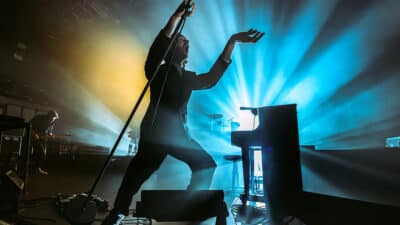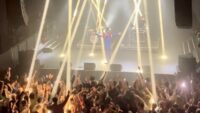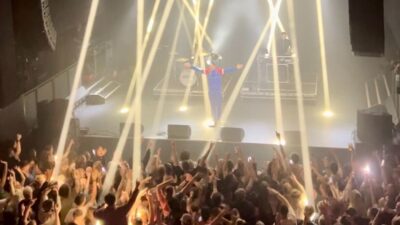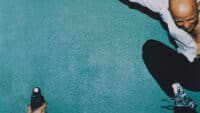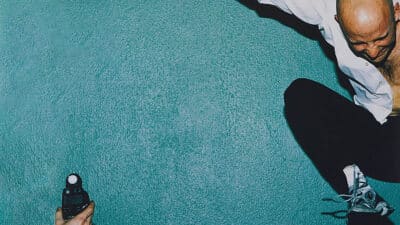Interview
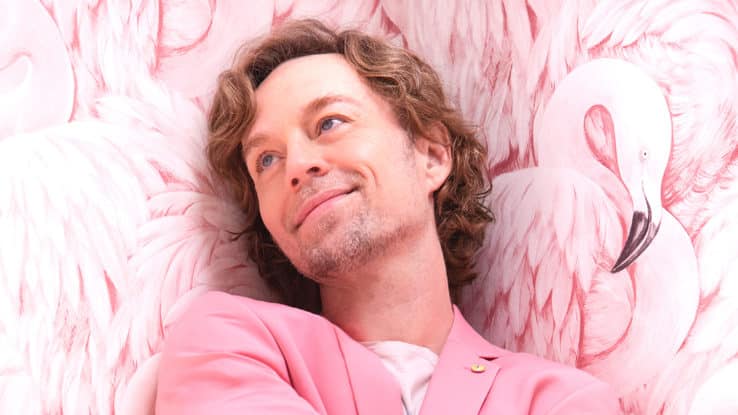
Interview
Darren Hayes: “I’m excited about music again. I haven’t felt this way since I was 19”
The Savage Garden star opens up his ten-year hiatus, finding a home in the queer pop scene, and why his new solo album is the most important record of his career
If things had gone a slightly different way, Darren Hayes would be running a comic store in Los Angeles right now. Soundtracking every wedding of 90s with global hits like ‘Truly Madly Deeply’ and ‘To The Moon And Back’, Hayes split from Savage Garden in the early 00s, starting a solo career that ran until 2011 before turning his back on the industry completely.
“I literally walked away from music,” says Hayes, squinting into the sun in the garden of a north London hotel. “I didn’t think I was gonna make music again and I didn’t make a big deal about it. To be honest, I was just burnt out. My husband and I moved to LA on a whim and, truthfully, I thought I was just going to retire and open a comic store.”
Luckily, that idea didn’t last long. Returning now with a new tour, a new sound, and the first few tracks of a new album, Hayes is back with the most important chapter of his career. Now opening up about the decade that almost led him away from music, Hayes tells us why the upcoming Do You Remember? tour is the biggest step he’s ever taken.
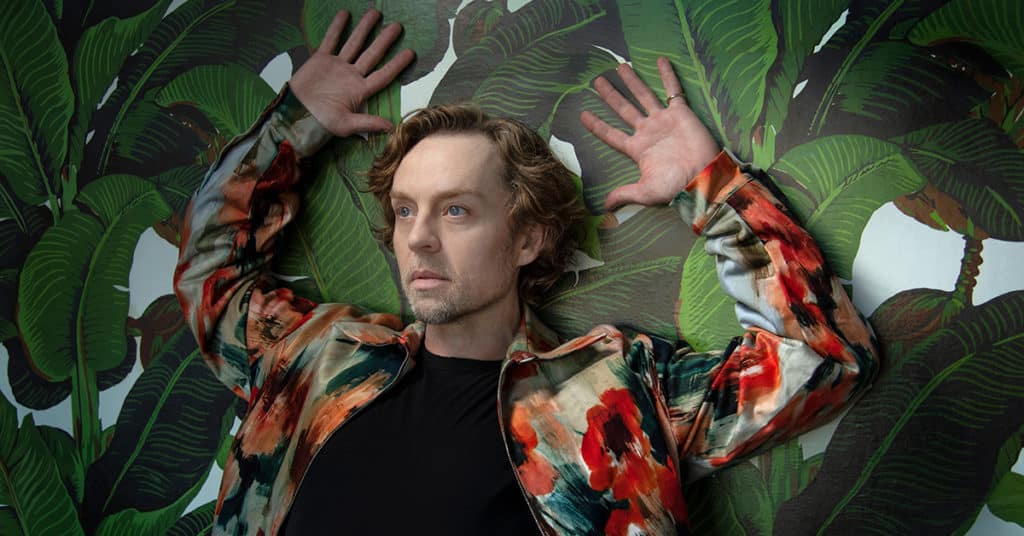
How close did you come to opening up that comic store?
This is going to sound very LA, but I remember my therapist said to me, “what do you actually know about business?” And I was like, “I like Star Wars…”. Then he told me about bottom lines and ordering stock and having to be there at nine o’clock in the morning. So that all sounded really dull. And he also told me, “look, you’ve been performing since you were 19…” I knew what he was saying, but I’m 50 now, and after about six months or so of thinking about that I was just really miserable.
Where did that take you next?
I studied improv for a few years. I went to the Groundlings Theatre, where a lot of SNL people train. One of my best friends had a baby and I helped raise her. I wrote a musical and I did some podcasts. And then one day I saw the movie Call Me By Your Name and I just had this really unnatural, sad reaction to it. It really hit me that, at the height of my fame, I was never proud of the fact that I was a gay person and that my music was never really queer.
That was something you’d been holding on to for a long time.
I mean, I was still married to a woman at the peak of Savage Garden. When I think back to the 80s, before I started out, I think of my influences like George Michael, Madonna, Prince and all of the people that influenced them. Club music. Disco. It was the Chicago house scene and Shep Pettibone remixes, and all of that stuff that I was listening to can be traced back to queer culture and things that I had no clue about.
Did you revisit those influences again when you started thinking about returning to music?
Yeah, so one of the first records I ever fell in love with was Prince’s Sign o’ The Times. On the back it said “produced, arranged, performed and composed by Prince”. So that was my goal. I just wanted to be that f**king excited about a record y’know? And it took years. I ended up studying production. I went and I learned how to programme, how to use Logic, how to use a LinnDrum machine and all that. Everything on this new record is me. It’s me on guitar, and it’s me creating the sounds. I even worked out how to do Prince’s Camille voice, using the actual technique that he used.
It’s a huge reset for you, almost like you’ve started again from scratch. How liberating was that?
Honestly, I’m excited about music again. Doing this just gave me a sense of freedom and autonomy that I haven’t felt since I was like 19.
What do you remember about that time when you were starting out?
I’ll just be completely honest with you, most people in this business have some sort of wound that they’re trying to work through. I describe mine as a God-shaped hole, and it just happens to be in the shape of a father. I have a lot in common with some of my idols in that respect. My home life was horrific. I had a father who was a violent alcoholic. I didn’t know it then, but I was gay. And I was told I was gay by everyone around me. My father was the first person that ever called me a faggot. I went to a Michael Jackson concert in 1987 and I remember being kicked and beaten by the girls behind me, calling me gay, because I was the person screaming out ‘I love you, Michael!’.
How did you even begin to deal with that at the time?
I started to dissociate at the age of 13. I think Michael Jackson looked how I felt. I remember looking up at this person that the whole world was mocking at the time, and I remember just thinking, ‘Oh, I identify with this, quote unquote, freak’. He seemed androgynous to me and I felt androgynous, but he also wielded this magical power. And I remember just thinking, I want to do that one day. Twenty years later we sold out that same arena twice.
Did that seem possible to you at the time, as a 13-year-old? Did you let yourself dream that?
I think the only reason anyone can ever succeed in this business is if they’re foolish enough to not realise how perilous it is. But I had so much to wish my life away from that I think it all seemed completely achievable. I was like, ‘oh, yes, I’ll just become a Michael Jackson’. But when I turned 40, when I walked away from music, I realised I hadn’t had another dream or career aspiration since I was 13.
How hard did that realisation hit when you got there in 2011?
It wasn’t like a midlife crisis, where I wanted to have an affair and buy a car and bleach my hair. For me midlife was a reckoning. It really is you. I looked at my whole life, and I realised I’d been on this momentum for 20 or 30 years, and now it had delivered me somewhere. For me, not all of it was good. Some of it was realising this missing part of me that never felt completely loved as a child, the part of me that I was trying to hide, because I hated the fact that I was gay. None of that got fixed from all the applause. But eventually I think anyone who creates is very sad when they don’t do it. And I had 10 years where I wasn’t doing it.
Was there a specific moment you remember when that feeling made itself felt?
This is the first time I’ve been in the UK in six years, and the last time I came back was to see Kate Bush. When I saw her show I just felt a deep sadness, thinking, ‘wow, there’s an atrophy happening with me’. There was alchemy in the room. That magical feeling. When a song starts you get goosebumps.
Some of the tracks on the new album are so full of energy, and others almost sound like you need to be listening to them alone, dealing with some really painful emotions. How difficult was it for you to balance those two different sides of yourself?
That’s really where I started I think. I’m always very honest about this, but I live with a pretty serious mental illness. I have major depressive disorder. And so the song ‘Poisoned Blood’ is really about suicidal tendencies. And, you know, during the last 10 years there were a couple of periods where I was very, very low.
Another song on the album, ‘All You Pretty Things’ is actually about the Pulse nightclub shooting, but it’s also this anthem to the power of the sanctity of the dance floor. When I first came out I was living in San Francisco, and my home was the alternative queer scene. I’ve never been considered traditionally good looking – I still don’t have abs – but there was always a moment at 3am in a club where I just felt like I belonged. There’s a line in that song where I say, “we’ve got to dance to remember them”, so I’m talking about Pulse, but I’m also talking about a friend of mine who died from HIV. I’m talking about this entire generation of gay men and women that we lost in the 1990s. An entire section of culture was erased overnight, like a snap in a Marvel movie.
What role did music play for you at the time when you were going through that?
I think a lot of my loss and confusion as a young person came from feeling like I didn’t really have anyone to lead me. We didn’t have an Olly Alexander back then. But I remember the euphoria and the ecstasy that I have always felt in electronic music. The first time I ever remember experiencing it was listening to Madonna say “only when I’m dancing can I feel this free at night or lock the door when no one else can see”. I still get goosebumps when I remember that. I would go home and I would put on her DVD of the Virgin tour, and I would do all the choreography.
There’s a lot of Madonna in ‘Let’s Try Being In Love’. Such a great example of both of those sides of yourself coming through at once – it’s such a fun song to listen to, but it cuts really deeply in the lyrics.
‘Let’s Try Being In Love’ is really all about the middle 8. I’ll let people interpret songs however they want to but it’s funny look at the YouTube comments and see people so divided. Some people say ‘this is the dumbest song ever! These are the worst lyrics he’s ever written!’. But I’m like, the middle 8 of that song has some of the most complicated lyrics I’ve ever written in my life. I’m talking about teenage passion and middle-aged desire. I’m talking about the fact that I feel invisible at 50.
Invisible how?
I look at my body in the mirror and I think ‘who is that?’. Where’s that 24-year-old that used to feel so beautiful?. I have love handles and I have wrinkles. My cheeks have shifted in my face. I do a photoshoot in the studio now and I think I’m pulling Blue Steel and I’m really not, it just doesn’t work anymore. I’m ageing, y’know, and that sh*t don’t look like it used to.
Heads have stopped turning. It’s like when you have a puppy and you think you have the best-looking dog in the world, and then one day people just stop looking at it. And that’s what happens with beauty and youth, and that’s what happens with pop careers. That’s what happens to fame and that’s what started happened with my sense of self-worth. I felt irrelevant. I felt like I had nothing to say. I had no sexual viability. I was becoming this harmless, nice, friendly gay man. ‘Oh, isn’t he lovely? We love Darren. He’s lovely…’.
No. I want to be f**kable.
Darren Hayes is on tour in March in April 2023, and tickets are on sale now here.





